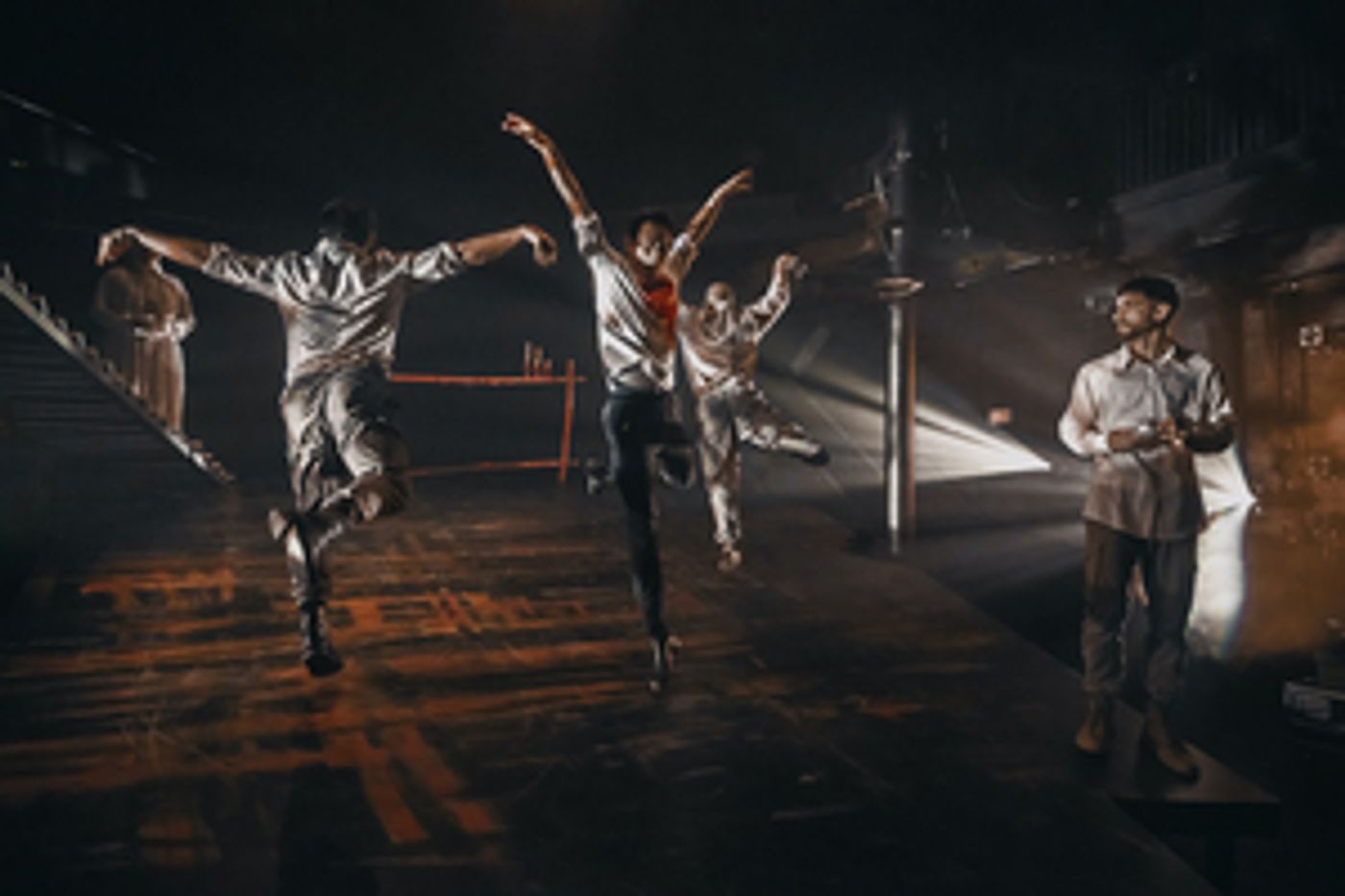Review: TOKA Cries Out for an End to Cycles of Violence
This beautiful production is streaming until April 23rd

Generational trauma, familial obligation, and the futile and inevitable results of "an eye for an eye" justice are given voice in Indrit Kasapi's powerful TOKA, a Theatre Passe Muraille and lemonTree creations digital co-production. After several postponements due to the pandemic, the production was finally filmed in November and is currently enjoying its digital premiere.
TOKA, which means "land" in Albanian, deals with the concept of the northern Albanian blood feud, or Gjakmarrja, a concept laid out in the Kanun, an ancient legal code. The code requires that men exact revenge for attacks on their family's honour, with a murder requiring a murder in response. A failure to participate results in ostracism from the wider community. It's a longstanding tradition facing a modern resurgence; starting in 1990s post-Communist Albania, blood feuds returned in force after being outlawed under dictator Enver Hoxha, resulting in thousands of killings.
Kasapi's play, directed by Cole Alvis, distills the issue into an exploration of the pain facing the Marashi and the Noka families following a deadly altercation decades ago based on a dispute over land ownership that speaks to the dangers of colonialism. Now, after the death of Besnik Marashi (William Yong) at the hands of Mark Noka (Riley Sims), each family only has one son remaining. It's up to Ermal Marashi (Christopher Manousos) and his 15-year-old sister Arjola (Kat Khan) to decide what happens next.
The filmic quality of the show, by cinematographer Kejd Kuqo, is designed to enhance the production, rather than existing as an afterthought. At times, thoughtful camera angles direct our attention to important pieces of choreography, with piercing closeups highlighting the way Ermal's throat or Mrs. Noka's (Nicole Joy-Fraser) lips contort with grief as they contemplate the destruction of their families.
At other times, camera movements serve to deliberately disorient the viewer, coupled with clever, eerie sound design (Maddie Bautista) that emphasizes the loudness of breathing during an anxiety attack, or the strange distorted echo of a lullaby as you slip into sleep. It's slightly jarring to see film effects used for something that couldn't happen in the physical space, but it happens rarely.
Most of the play's action takes place on a raked stage with a deceptively steep incline that references the mountainous landscape; red streaks crossing the black background recall the stain of violence (set design by Andjelija Djuric). A red doorframe effectively serves as a portal between feuding dynasties, and from this world to the next.
The choreography is stunning, featuring the silent ghosts of the past that forever batter the edges of Ermal's consciousness: Grandfather (Kasapi), Father (Sims), and Besnik. Characters step over the physical presence of imagined bodies that litter the landscape, or wind together in intricate motions that stain the dancers with familial blood. Over and over, they lift each other, dripping with heavy symbolism about carrying the weight of history, family honour, and unpayable debt. The wraithlike movements are hypnotic, the spell only broken by sudden moments of force and tension. Drumbeats like gunshots and simple but evocative piano melodies heighten the experience to something that feels truly special and resonant. Though silent, Yong's Besnik is a magnetic, accusatory presence.
At the core of the show, Manousos effectively portrays Ermal's fear of being seen as weak and unmanly, despite his desire to experience softness. Khan radiates steely determination as a young woman with responsibilities beyond her years, and Joy-Fraser's sorrowful song echoes in her regret for not moving toward reconciliation sooner.
TOKA is not a subtle show. Emotions run high, and characters say precisely what they are feeling much of the time in meaningful but unadorned language. The message, similarly, is loud and clear: to move forward, someone must have the courage to end the cycle of violence, even if it means losing face in the community. We must reconcile by seeking the forgiveness of both others and ourselves. This lack of subtlety gives the show a refreshing feeling of raw honesty, and is balanced by the delicate beauty of its choreography.
Much like this balance, it's a play that gives itself space for healing as well as pain, leaving you aching but hopeful, like a broken bone on its way to knitting whole.
How to Get Tickets:
Theatre Passe Muraille and lemonTree creations' TOKA is playing until April 23, 2022, online.
For more information or to purchase tickets, visit https://www.passemuraille.ca/21-22-season/toka/
Photo Credit: Brian Medina
Reader Reviews
Videos

